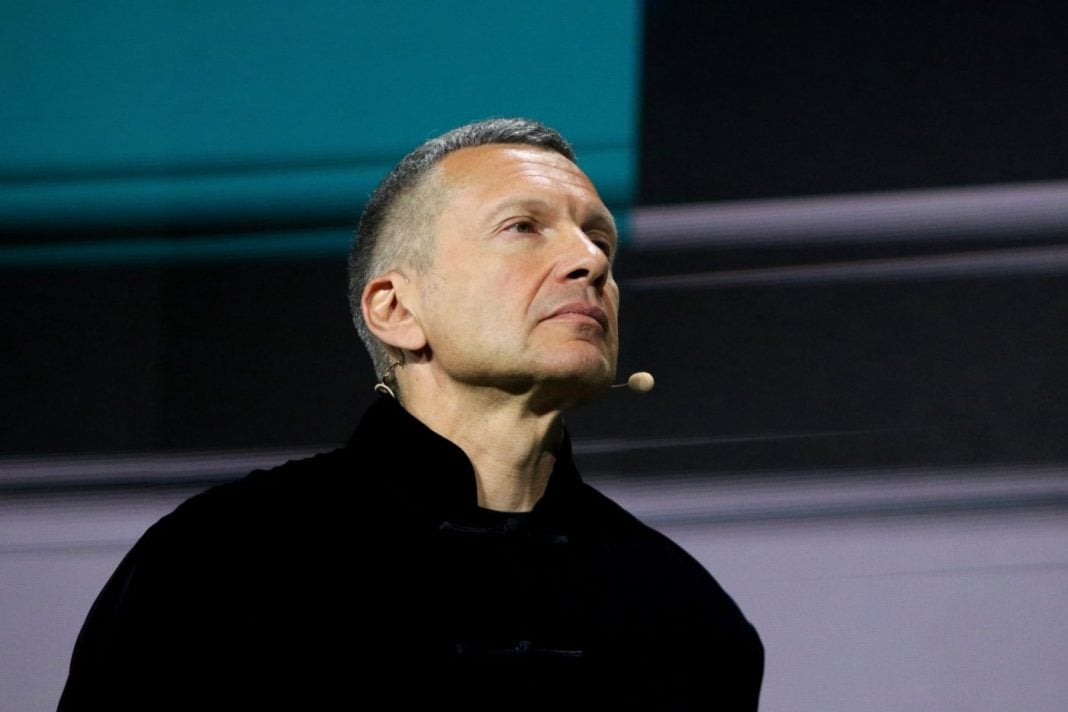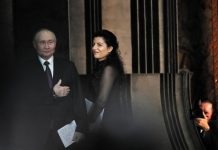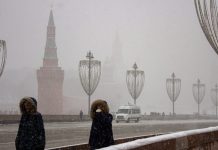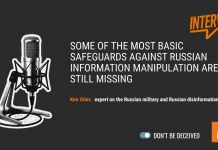The Kremlin’s propagandists are in a joyous mood as they anticipate US disengagement from the conflict.
By Julia Davis, for CEPA
As always, the most accurate assessment of the mood in the Kremlin came not from its robotic public statements, but from its highly-paid propagandists in the TV studios. Since they are regularly briefed by the Kremlin’s handlers on what they can and can’t say, their scripted narratives and carefully crafted discussions offer the best window into the regime’s views and aims.
This was also true after the May 19 telephone conversation between Putin and US President Donald J. Trump about a possible peace deal in Ukraine. The readout from the US administration was positive if distant (the new Pope now seems to have a role, and the US may be stepping back to a certain degree). The Russian take, on the other hand, was the same as it has always been.
Russian state television repeatedly stated that Moscow has no interest in a ceasefire or peace — unless it amounts to Ukraine’s full and unconditional capitulation.
On May 14, during his radio show Full Contact, state TV host Vladimir Solovyov bluntly told Ukrainians: “You want a ceasefire — and I want you dead.” The two-hour Putin-Trump call thrilled Solovyov not because it brought peace closer but because it didn’t. It was “phenomenal,” he exclaimed, because a ceasefire was reportedly never even mentioned. He then pompously congratulated his audience on what he described as a “victory”.
The show Your Own Truth broadcast a poll conducted by the NTV channel, which demonstrated that 80% of the viewers did not believe that Trump’s efforts would lead to a ceasefire. Host Roman Babayan ridiculed Trump’s apparent wish to receive a Nobel Peace Prize, although expert Andrey Koshkin stated that Trump’s interests are “in alignment” with the Kremlin.
Some experts speculated that the May 16 Istanbul talks between Russia and Ukraine, which were direct, inconclusive, and low-level, in reality amounted to a joint behind-the-scenes plot between Russia and the United States to lay the groundwork for Trump to abandon Ukraine when it refuses to capitulate.
Talking heads on state television repeatedly pointed out that Moscow was not offering any concessions whatsoever and had instead ratcheted up its demands. Ukraine’s anticipated rejection of Russia’s terms would provide the pretext for Trump to walk away when the parties fail to agree — and put an end not only to America’s diplomatic efforts, but also its military aid, Russian analysts suggested.
During the show The Meeting Place on Monday, Gevorg Mirzayan, research fellow of the RAS US and Canadian Studies Institute, explained that Russia pretended to entertain the idea of a ceasefire to provide a cover for the actions Trump intended to take towards Ukraine, abandoning it to fend for itself one-on-one with Russia.
Mirzayan explained: “Right now, Putin and Trump are preparing a number of excuses for Trump with respect to Ukraine.” He added, “We won,” even though “nothing was accomplished during the negotiations.”
Appearing on a state TV show, 60 Minutes, on May 13, Alexei Naumov, an expert at Russia’s International Affairs Council, surmised that Trump obviously doesn’t want a confrontation with Russia and does not intend to impose any additional sanctions. He predicted: “[Trump] will most likely leave the negotiations, which is one of the most favorable scenarios for Russia.”
On May 20, The New York Times reported that after his call with Putin, Trump told Zelenskyy and other European leaders that Russia and Ukraine would have to find a solution to the war themselves — despite his recent assertions that the conflict can be resolved only through his personal interactions with Putin.
During Tuesday’s broadcast of The Evening With Vladimir Solovyov, host Vladimir Solovyov admitted he was “enjoying every single detail” of what is taking place. Grinning, he mentioned that Trump referred to Putin, who is indicted for war crimes, as “a nice gentleman,” and found it rather endearing that neither one of them wanted to be the first to hang up the phone.
After relishing the pleasantries between Trump and Putin, Solovyov regaled his audience with his now-customary nuclear threats towards the European nations. He mimicked Trump washing his hands from the conflict with the words, “Not my war, not my problem.” Solovyov’s guests shared in his joy.
Stanislav Tkachenko, Professor of the Department of European Studies, who heads the diplomacy master’s program at the St. Petersburg State University, pointed out another bonus for the Kremlin.
He stated: “What goals can be achieved through the negotiations between Russia and the United States, beyond the Ukrainian topic?” He specified, “Of course, I’m talking about our goals. The first one is, of course, to divide the West. Divide et impera [divide and conquer].”
By Julia Davis, for CEPA
Julia Davis is a columnist for The Daily Beast and the creator of the Russian Media Monitor. She is a member of the Academy of Television Arts and Sciences, the Screen Actors Guild, and Women In Film.
Europe’s Edge is CEPA’s online journal covering critical topics on the foreign policy docket across Europe and North America. All opinions expressed on Europe’s Edge are those of the author alone and may not represent those of the institutions they represent or the Center for European Policy Analysis. CEPA maintains a strict intellectual independence policy across all its projects and publications.





